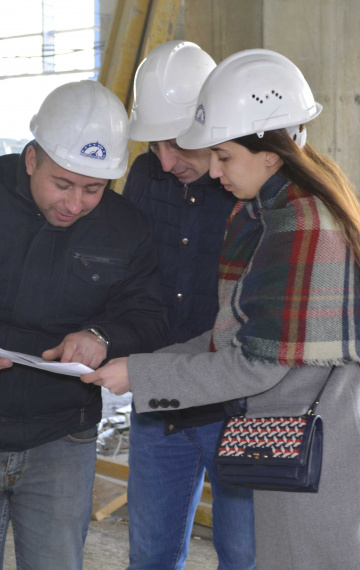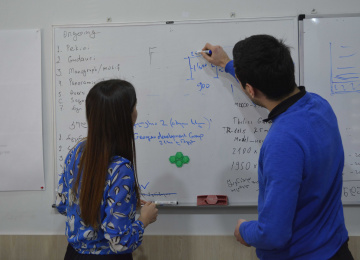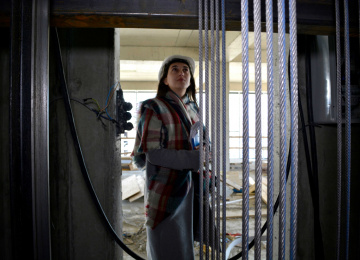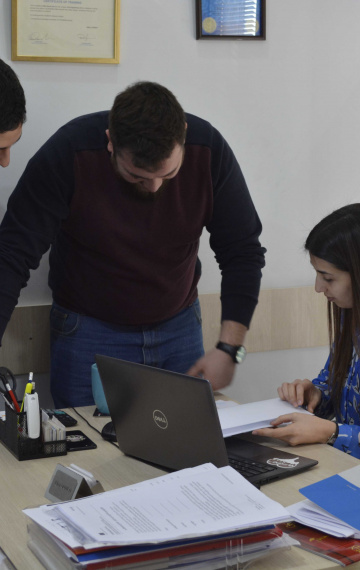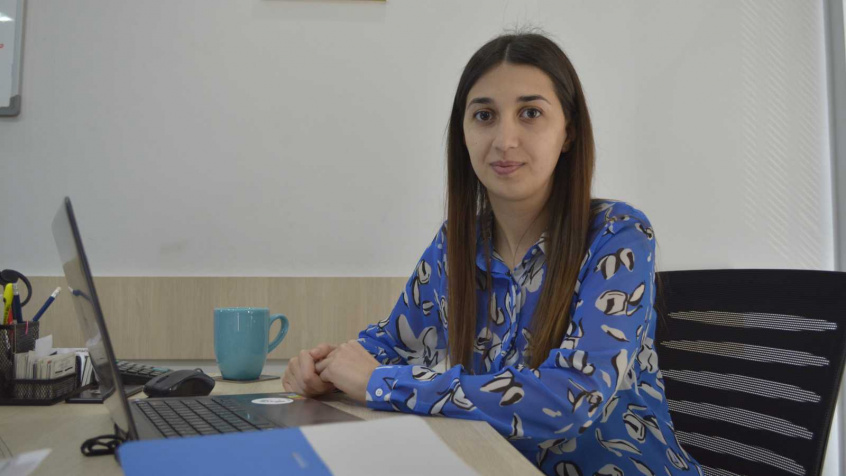
The Tech Engineering Group is one of the companies in Georgia that received support from the 'Women in Business’ programme, implemented by the European Bank for Reconstruction and Development (EBRD), with support from the European Union, among other donors.
Irina Gloveli, who became the director of the company in 2017, shortly before this support arrived, says it is difficult, though not impossible, for women to be successful in business:
“Women in Georgia establishing themselves in top managerial positions face certain difficulties, but everything is possible with professionalism and proper effort. In my case, in the early stages in this rather specific field, I tried to study all topics in detail, to understand everything – from financial issues to difficult engineering decisions. Finally, this paid off, and today I am the director of the company.”
The company she manages operates in the field of provision and assembly of escalators and elevators. Irina has 40 employees. As well as Tbilisi, they have an office in Batumi. The company does not only work in assembly, but also provides technical maintenance for clients.
Irina says the EBRD programme, implemented as part of the EU4Business initiative, supported the company with its accounting, helping to put financial reporting in order and into a unified system.
“We received a grant to examine the company’s 2013-2016 accountancy records and reporting in the ORIS programme. Simultaneously we had consultations and recommendations for accountancy records and reporting in accordance with international financial reporting standards (IFRS),” says Irina.
The programme funded 60% of the total costs of the programme, which came to about GEL 18 000. At the time the company would have been unable to pay this sum alone.
“Our total accountancy recording/reporting system is more orderly and standardised, [and it is] more reliable and easy for the partners to communicate with us,” says Irina.
The project consultant worked with the Tech Engineering Group financial and management team for about two months.
Irina says that thanks to the programme, which enabled them to put their financial reporting in order, the company’s profits increased by 7.5%. Since 2017, the number of corporate clients of the company has increased by 10%.
Irina advises women who would like to be funded by the Women in Business programme to define their company’s needs clearly before filling in an application.
“Despite the fact that EBRD representatives will consult them and give advice about the specific areas which need input, it helps to identify more precisely in the application the specific area that is in greatest need of financial support.”
Irina points to 'Business Lens', an application created in the framework of the programme. Using a questionnaire, the application will reveal how your business is managed in seven main areas: financial management and effectiveness, market knowledge, sales and marketing, human resources, strategy and organisations, operating and risk management.
After your business has filled out the questionnaire, Business Lens will create an account highlighting your results and the drawbacks the company may have in each area.
The EBRD's Women in Business programme works with women-led small and medium-sized enterprises in more than 20 countries, and in Georgia is co-funded by the EU as part of its EU4Business initiative, Sweden, Early Transitions Countries Fund and Small Business Impact Fund.
Author: Mariam Varadashvili
Story first published on the EU Neighbours East website www.euneighbours.eu

